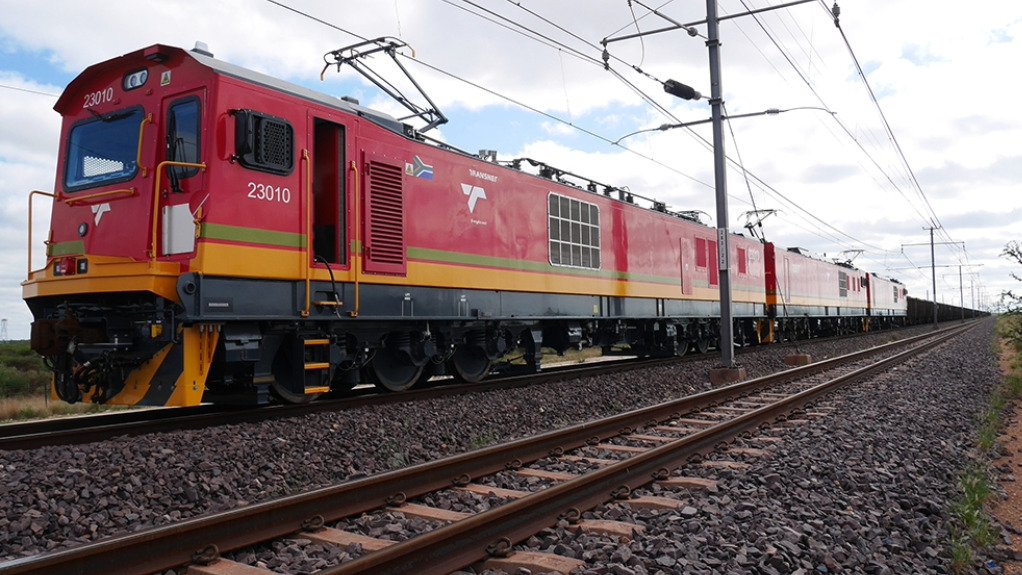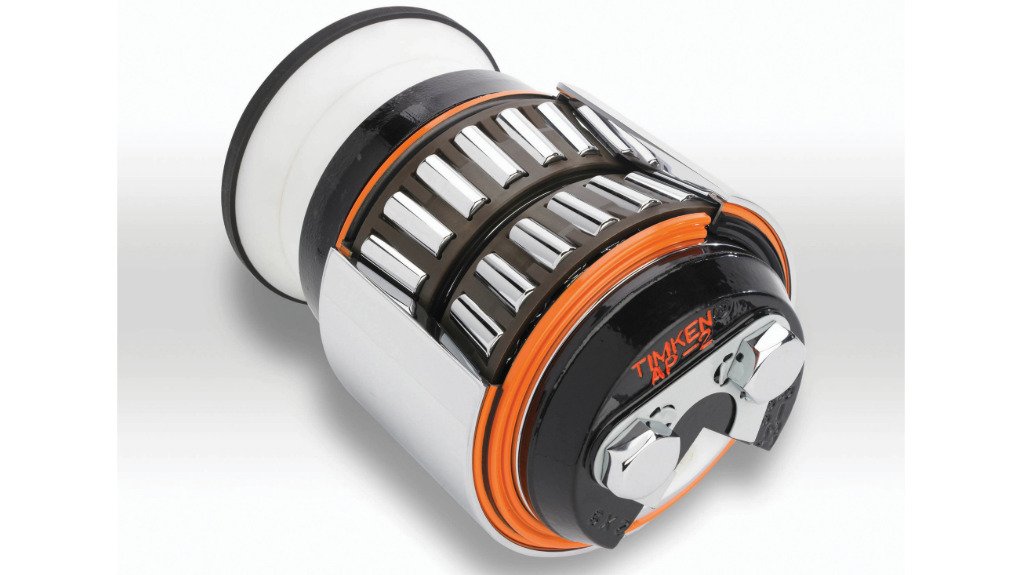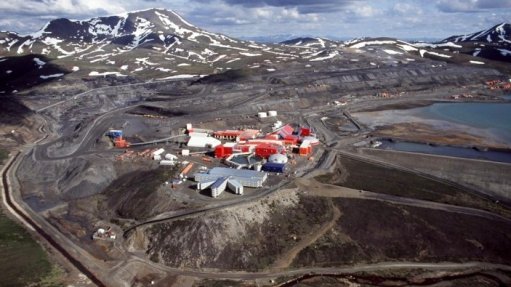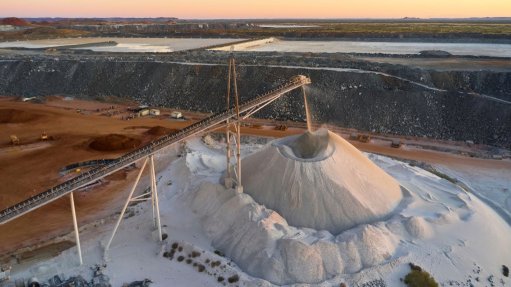Long-standing relationships key



INSTITUTIONAL KNOWLEDGE Local product supplier partnerships complemented with a comprehensive understanding of the railway industry key to growth on the continent
DURABILITY EMPHASISED Innovation outlined as a prerequisite for the longevity of manufactured bearing components
Engineered bearings and industrial motion product supplier Timken states that its ability to build meaningful business relationships in the railway industry over the past 90 years has provided a key stepping-stone for its continued success in Africa.
“Local partnerships are critical, as South Africa has unique topography and commodity requirements. The terrain and our need for transporting high volumes of iron-ore and coal, places specific demands on the rolling stock and Timken’s products that are used on the freight wagons and locomotives. Our relationships with operators like State-owned rail and port operator Transnet are critical, to ensure that we continually supply the most effective journal bearings, with the most durable sealing arrangement. Timken also provides specific cast products for use on freight wagons and locomotives,” highlights Timken South Africa operations director Shaun Potgieter.
He
says Timken has a longstanding relationship with Transnet – dating back to 1934 – when it first started supplying the entity with journal bearings for its locomotives, passenger cars and freight wagons.
“When Timken South Africa was founded in 1932, its primary function was to support the South African Railways, which at that stage, was one of the largest railroads in the world under a unified management structure. This demand culminated in the construction of Timken’s Benoni grinding and assembly plant in 1951, the precursor to our current Pomona, Gauteng facility, which remains the highest contributor for local content in South Africa for bearing assemblies,” he explains.
Timken has a long history of technical engagement with Transnet on rail engineering requirements, resulting in an engineering partnership that delivers tangible results and benefits to the local rail industry.
Timken also supplies ancillary journal bearing components that Transnet uses during its maintenance processes, as well as a variety of Timken cast products, including axle boxes, motor suspension units and adapters, to Transnet and other smaller customers in Southern Africa, adds Potgieter.
Throughout Africa, Timken maintains service relationships to help customers with rolling stock maintenance, bearing installation, and maintenance workshops. Potgieter notes the importance of maintaining a rapport with Timken customers, arguing that, while customers may not always need components, the continued engagement equips them with the foresight to understand what components or maintenance will be required in the future.
Innovative Capacity
Timken stresses the importance of its research and development capabilities and its quality processes in manufacturing quality components and bearings for the railway industry in South Africa and the rest of the continent.
Potgieter asserts that it is not unusual for a Timken journal bearing to be in operation for over 50 years. However, key to this longevity is the company’s overall focus on quality, particularly its bearing steel, heat treatment processes and manufacturing standards.
“Our bearing steel is generally regarded as the highest quality in the world and our facility in Pomona is part of Timken’s global rail manufacturing footprint, hence our internal and external customer base. Our local supply chain is audited and accredited by Timken for use in our rail bearing assemblies globally.”
He adds that every aspect of the company’s manufacturing process is in accordance with Timken’s global manufacturing standards. The facility itself is International Organisation for Standardisation and Association of American Railroads accredited.
Technology also plays a key role in the quality of Timken’s products. The company asserts that bearings can be calculated to minute details, ensuring that the bearing design life is calculated accordingly. Timken maintains 100% traceability on all its rail bearings.
Potgieter explains that “there is no aspect of a Timken bearing that is not known, as every parameter is closely controlled to consistent tolerances ... even the grease is weighed to a single gram”.
Every bearing that leaves its facility has its own ‘passport’, its own biometric life history, allowing the company to review the bearing’s manufacturing process if needed.
Further, there is greater need for the rail industry to mitigate the peripheral impact of losing out on commodity flows coming from the Southern Africa Development Community and from Central Africa, he adds.
“Africa needs rail. Most African governments do not have the available funds to invest in rebuilding road networks and a large portion of Africa’s GDP is dependent on mining and commodities. Wherever bulk road transportation of a commodity is required, there is the corresponding deterioration of the road infrastructure. The mining industry in Africa needs to shift vast quantities of commodities, which causes significant road deterioration. Cost per ton of the commodity is also negatively impacted. Therefore, the continent must get those volumes out at a cost-effective rate, which largely precludes road freight,” Potgieter concludes.
Article Enquiry
Email Article
Save Article
Feedback
To advertise email advertising@creamermedia.co.za or click here
Announcements
What's On
Subscribe to improve your user experience...
Option 1 (equivalent of R125 a month):
Receive a weekly copy of Creamer Media's Engineering News & Mining Weekly magazine
(print copy for those in South Africa and e-magazine for those outside of South Africa)
Receive daily email newsletters
Access to full search results
Access archive of magazine back copies
Access to Projects in Progress
Access to ONE Research Report of your choice in PDF format
Option 2 (equivalent of R375 a month):
All benefits from Option 1
PLUS
Access to Creamer Media's Research Channel Africa for ALL Research Reports, in PDF format, on various industrial and mining sectors
including Electricity; Water; Energy Transition; Hydrogen; Roads, Rail and Ports; Coal; Gold; Platinum; Battery Metals; etc.
Already a subscriber?
Forgotten your password?
Receive weekly copy of Creamer Media's Engineering News & Mining Weekly magazine (print copy for those in South Africa and e-magazine for those outside of South Africa)
➕
Recieve daily email newsletters
➕
Access to full search results
➕
Access archive of magazine back copies
➕
Access to Projects in Progress
➕
Access to ONE Research Report of your choice in PDF format
RESEARCH CHANNEL AFRICA
R4500 (equivalent of R375 a month)
SUBSCRIBEAll benefits from Option 1
➕
Access to Creamer Media's Research Channel Africa for ALL Research Reports on various industrial and mining sectors, in PDF format, including on:
Electricity
➕
Water
➕
Energy Transition
➕
Hydrogen
➕
Roads, Rail and Ports
➕
Coal
➕
Gold
➕
Platinum
➕
Battery Metals
➕
etc.
Receive all benefits from Option 1 or Option 2 delivered to numerous people at your company
➕
Multiple User names and Passwords for simultaneous log-ins
➕
Intranet integration access to all in your organisation




















